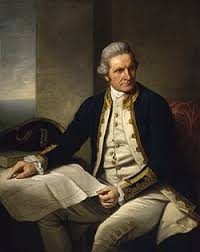Exploring the Legacy of James Cook

Introduction
James Cook, a British explorer, navigator, and cartographer, is a pivotal figure in the history of exploration and maritime navigation. Born in 1728, Cook’s voyages in the 18th century significantly expanded the geographical knowledge of the time, laying the groundwork for future explorations and interactions with the Pacific Islands and other regions across the globe. His significance remains relevant today as his contributions to mapping and navigation continue to impact modern maritime practices.
Overview of James Cook’s Voyages
Cook’s first voyage, which took place from 1768 to 1771, was aimed at observing the transit of Venus across the sun and claiming New Zealand and Australia for Britain. During this journey, Cook meticulously mapped the coasts of New Zealand and the eastern coastline of Australia, providing accurately detailed charts that would be used for decades.
His second voyage was from 1772 to 1775, aimed at searching for the hypothetical southern continent, Terra Australis. This voyage took Cook further south than any other explorer had previously ventured, and he circumnavigated the globe at high latitudes, marking him as one of the most daring explorers of his time.
Cook’s third and final voyage from 1776 to 1779 aimed to find a northwest passage above North America. During this expedition, he made significant visits to Hawaii, where he was ultimately killed in 1779 following a series of conflicts with native Hawaiians. His legacy, however, continued long after his untimely death.
Impact and Legacy
James Cook’s explorations not only contributed to the scientific understanding of the Pacific Ocean but also played a crucial role in establishing British colonies and maritime supremacy. His detailed maps and logs provided a wealth of information that inspired subsequent explorers and settlers in the region.
In addition, Cook’s careful observations and record-keeping improved navigational techniques and standards significantly, which are still revered in maritime studies today. His encounters with indigenous populations have also prompted ongoing discussions about the impacts of colonialism and cultural exchange, shaping contemporary attitudes towards heritage and history.
Conclusion
The legacy of James Cook remains significant, both for the field of exploration and in broader discussions around colonial history. As we reflect on his contributions, it is crucial to acknowledge not only his achievements but also the consequences of his voyages on indigenous populations and ecosystems. Cook’s life prompts an important dialogue about exploration, the ethics of colonisation, and the importance of responsible navigation and mapping in today’s world.
